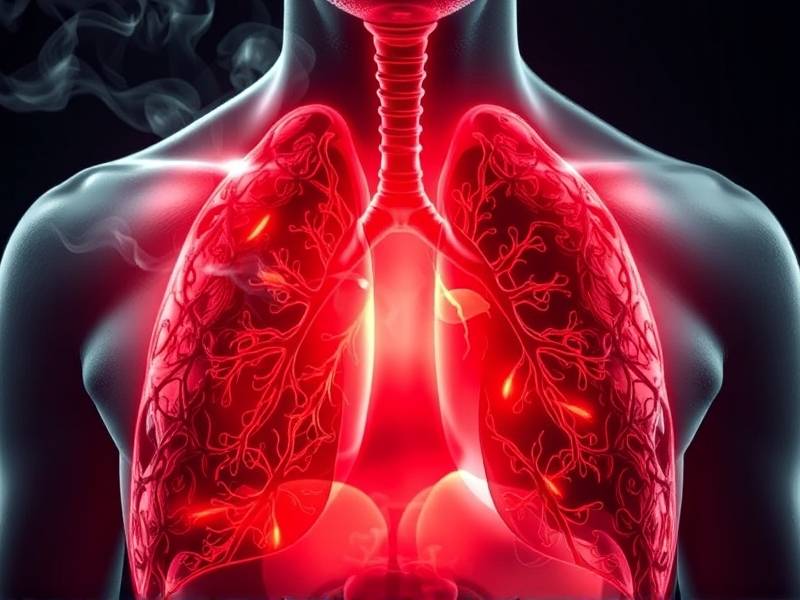Why Do My Lungs Hurt Now That I Quit Smoking?
The Surprising Pain in Your Lungs After Quitting Smoking: What It Means and How to Manage It
Introduction: Quitting smoking is a significant step towards a healthier life, but it often comes with unexpected challenges. One of the most surprising symptoms reported by ex-smokers is pain in the lungs. In this article, we'll explore why your lungs might hurt after quitting smoking and how to manage this discomfort effectively.
Understanding Lung Pain After Quitting Smoking
1. Coughing and Bronchial Irritation
One of the most common reasons for lung pain after quitting smoking is an increase in coughing. As you stop smoking, your body starts to clear out mucus and tar that have accumulated in your lungs over the years. This process can cause irritation and, consequently, pain.

2. Healing Injuries
Smoking damages the delicate tissues in your lungs, leading to inflammation and scarring. When you quit, your body begins to heal these injuries, which can sometimes be painful.
3. Increased Oxygen Intake
After quitting smoking, your body adjusts to increased oxygen levels. While this is beneficial for overall health, it can also cause temporary discomfort as your body adapts.
How to Manage Lung Pain After Quitting Smoking
1. Stay Hydrated
Drinking plenty of water helps thin mucus and makes it easier for your body to expel it from the lungs.
2. Practice Deep Breathing Exercises
Deep breathing exercises can help improve lung function and alleviate discomfort by increasing oxygen flow.
3. Consider Over-the-Counter Medications
Non-prescription cough syrups or decongestants may provide relief from coughing or congestion.
4. Consult a Healthcare Professional
If you experience severe or persistent pain, it's essential to consult a healthcare professional who can provide appropriate advice or treatment.
Conclusion
While lung pain after quitting smoking can be unsettling, it's generally a sign that your body is healing from years of smoke damage. By staying hydrated, practicing deep breathing exercises, using over-the-counter medications when necessary, and seeking professional advice if needed, you can manage this discomfort effectively on your journey towards better health.

Remember that quitting smoking has long-term benefits beyond immediate relief from lung pain. Your efforts are contributing to a healthier future for yourself and those around you. Keep up the good work!
